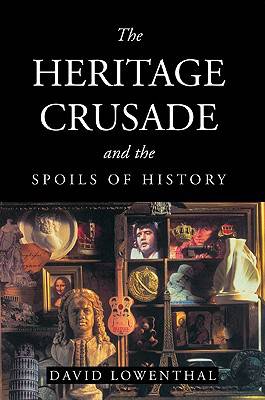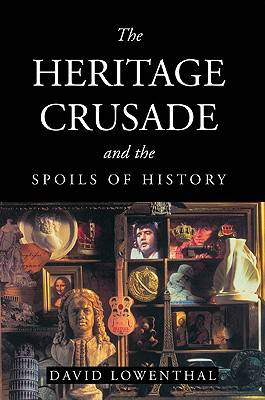
- Afhalen na 1 uur in een winkel met voorraad
- Gratis thuislevering in België vanaf € 30
- Ruim aanbod met 7 miljoen producten
- Afhalen na 1 uur in een winkel met voorraad
- Gratis thuislevering in België vanaf € 30
- Ruim aanbod met 7 miljoen producten
Zoeken
€ 41,95
+ 83 punten
Omschrijving
Heritage, while it often constitutes and defines the most positive aspects of culture, is a malleable body of historical text subject to interpretation and easily twisted into myth. When it is appealed to on a national or ethnic level in reactions against racial, religious, or economic oppression, the result is often highly-charged political contention or conflict. The extraordinary theme of this unique book is how the rise of a manifold, crusade-like obsession with tradition and inheritance--both physical and cultural--can lead to either good or evil. In a balanced account of the pros and cons of the rhetoric and spoils of heritage--on the one hand cultural identity and unity, on the other, potential holy war--David Lowenthal discusses the myriad uses and abuses of historical appropriation and offers a rare and accessible account of a concept at once familiar and fraught with complexity. David Lowenthal is Emeritus Professor of Geography at University College London, and the author of the bestselling The Past is a Foreign Country (Cambridge, 1985)
Specificaties
Betrokkenen
- Auteur(s):
- Uitgeverij:
Inhoud
- Aantal bladzijden:
- 358
- Taal:
- Engels
Eigenschappen
- Productcode (EAN):
- 9780521635622
- Verschijningsdatum:
- 13/05/1998
- Uitvoering:
- Paperback
- Formaat:
- Trade paperback (VS)
- Afmetingen:
- 152 mm x 228 mm
- Gewicht:
- 571 g

Alleen bij Standaard Boekhandel
+ 83 punten op je klantenkaart van Standaard Boekhandel
Beoordelingen
We publiceren alleen reviews die voldoen aan de voorwaarden voor reviews. Bekijk onze voorwaarden voor reviews.








